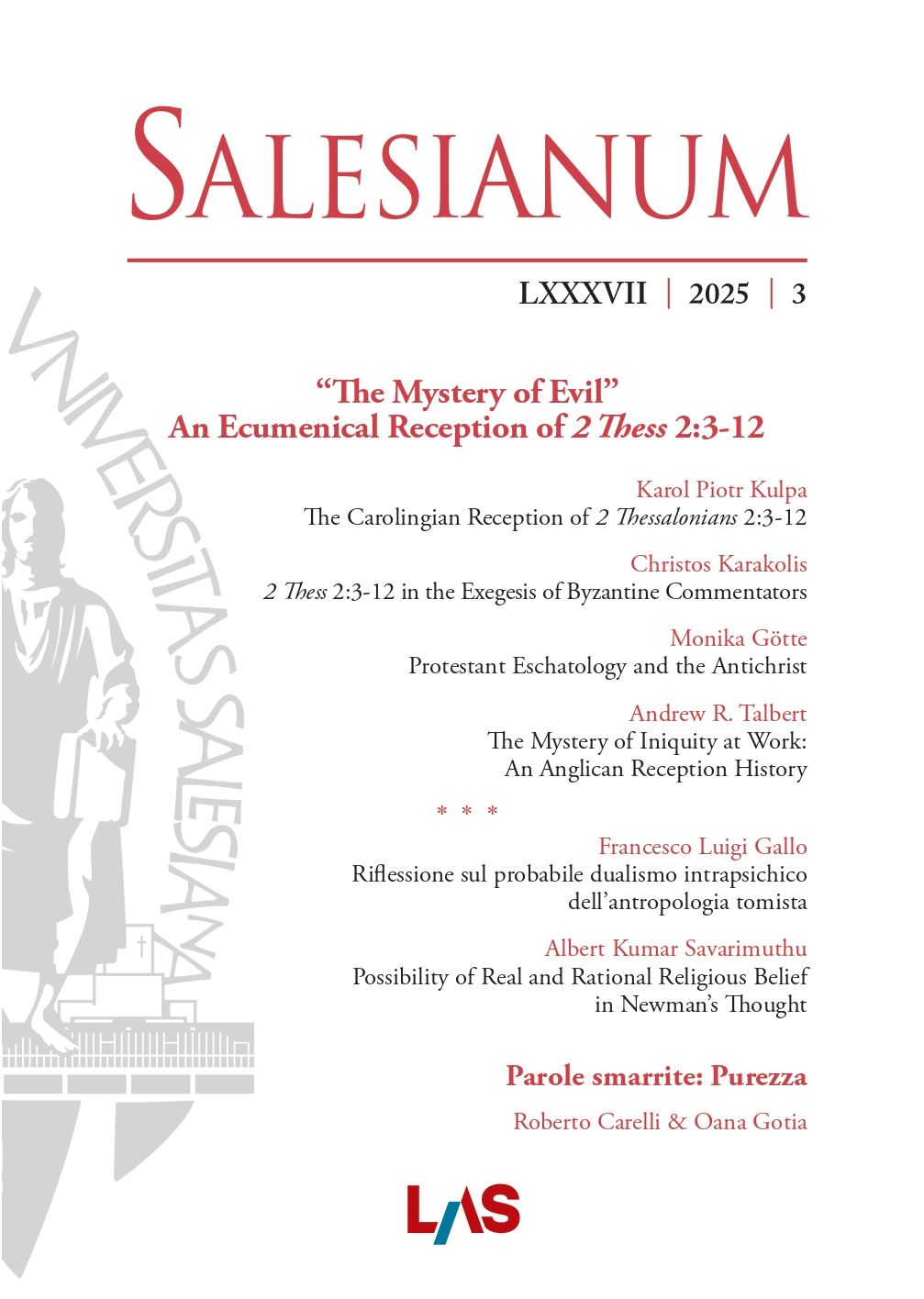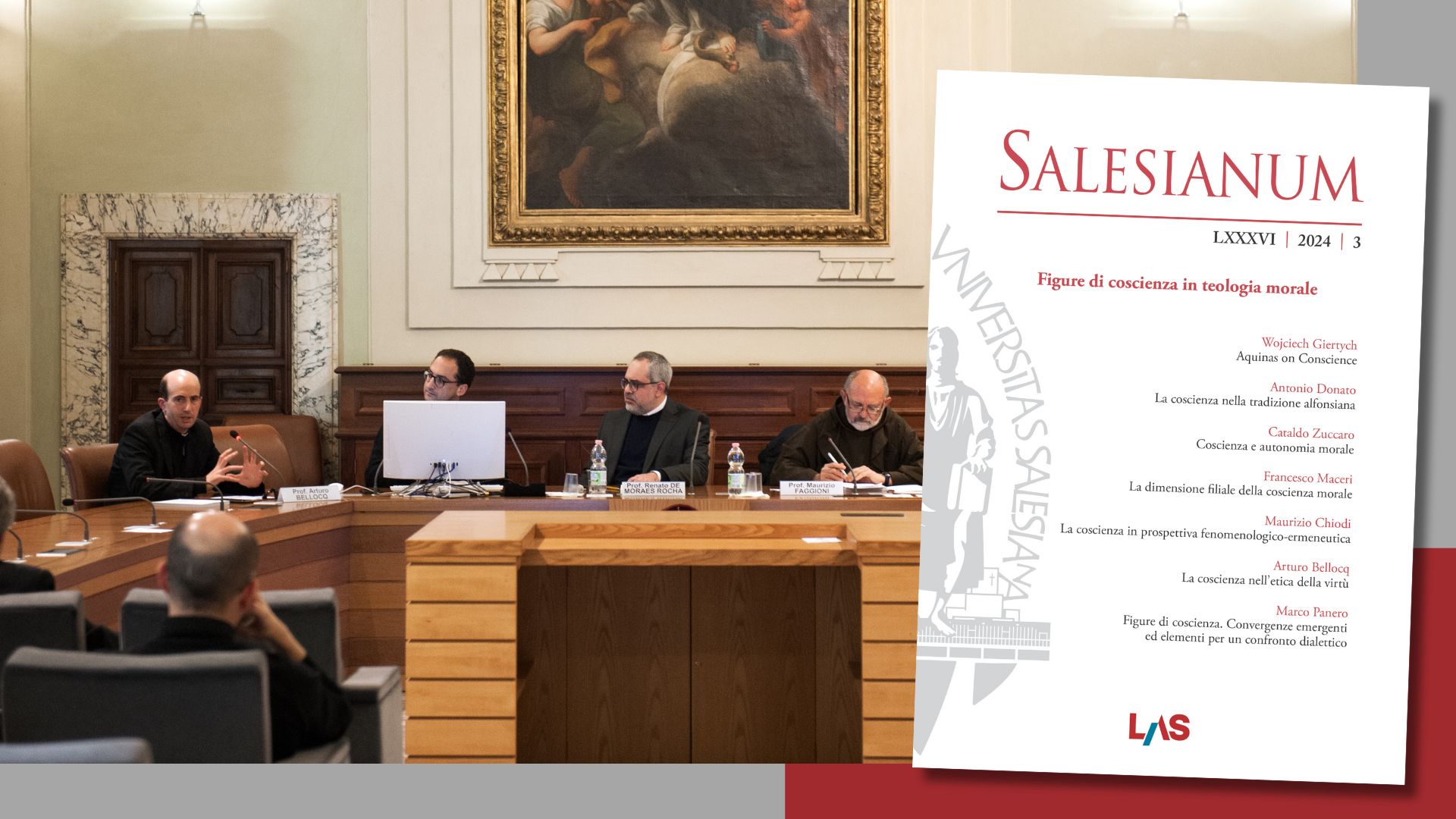Nicea I: ellenizzazione del Cristianesimo o sviluppo del dogma?
Nicaea I: Hellenization of Christianity or Development of Doctrine?
Salesianum vol. 87 (2025) n. 2, 235-271Sezione: Studia
Sommario
L’autore del contributo intende rispondere all’antica e pur sempre attuale obiezione di Adolf von Harnack († 1930) circa una presunta ellenizzazione del messaggio cristiano in epoca patristica. A tal scopo, ripercorre le varie tappe che dalla Rivelazione neotestamentaria condussero alla formulazione della fede nicena, mostrando che non vi fu né discontinuità né rottura ma autentico progresso dogmatico. Questo sviluppo favorì tra l’altro la comunicazione del messaggio cristiano in ambito culturale greco, mettendo in
risalto la stessa razionalità della fede, dato che il cristianesimo può essere chiamata la “religione del Logos”.
Parole chiave
Giudeocristianesimo | Ellenizzazione | Concilio di Nicea | Adolf von Harnack | Fede e ragione
Abstract
In the present paper, the author intends to respond to the ancient and still current objection of Adolf von Harnack († 1930) about a presumed Hellenization of the Christian message in the patristic era. To this end, he retraces the various stages that led from the New Testament Revelation to the formulation of the Nicene faith, showing that there was neither discontinuity nor rupture but authentic dogmatic progress. This development also favored the communication of the Christian message in the Greek cultural sphere, highlighting the very rationality of faith, given that Christianity can be called the “religion of the Logos”.
Keywords
Judeo-Christianity | Hellenization | Council of Nicaea | Adolf von Harnack | Faith and Reason


